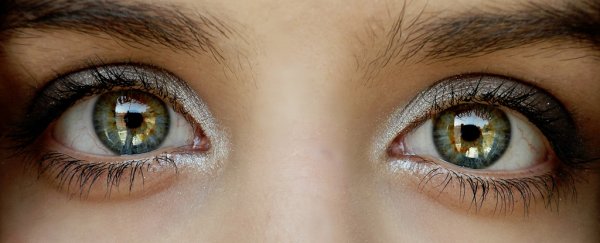It's no secret that people's eyes see the world in slightly different ways, but those differences aren't just limited to disparities in how our brains process colour and light.
A new study suggests that the knowledge we possess changes the way we visually perceive things. In an experiment, the researchers tested ways in which two groups of people viewed written characters differently, but they say the finding could apply to any object we look at, such as faces, vehicles, and animals.
"You might assume we have basic vision machinery and that you could detect features of different letters even if you didn't know the language," said cognitive scientist Brenda Rapp from Johns Hopkins University. "But that's not the case. What you know affects how you see things."
To test the extent of their hypothesis that prior knowledge affects visual perception, the team recruited two groups of participants with distinctly different levels of knowledge of the Arabic alphabet. One group consisted of 25 experts in Arabic; the other had no previous exposure to the characters.
The researchers showed the participants 2,000 pairs of letters, a single pair at a time, asking them whether the two characters in each instance looked the same or different.
Measuring the responses for both speed and accuracy, the team found that novices were quicker to differentiate letters from one another, but experts were more accurate.
When more complex characters were shown (with more visual features), the speed advantage shifted. Novices became slower in their responses, but the added details – such as horizontals, whorls, and curves – helped the expert group in their determinations.
When the researchers collected the responses – gathering all the characters that the novices or the experts thought looked similar – it became clear that previous knowledge of the language affected the visual processing of resemblance.
According to the scientists, those familiar with the alphabet were biased by non-visual details they already understood about the characters, such as individual letter names, their pronunciation, or the way in which they are written down.
"When you become an expert in reading an alphabet, what does that change? Does your visual system see the same thing as a beginner?" said one of the team, Robert W. Wiley. "We say no. If you're an expert, things that look complex to a novice look simple to you."
The findings, published in the Journal of Experimental Psychology: Human Perception and Performance, aren't the first time researchers have found previous knowledge of a language can alter the way our brains handle information.
Last year a study suggested that the first language people adopt in life creates a kind of pattern in the brain that affects the way we process any subsequent languages learned later on.
While the focus of the Arabic alphabet study looks beyond just language processing, it seems we're discovering that the things we learn and come to know have significant effects on us in themselves – and which we personally might never be aware of.
"[Our finding] should hold true for any sort of object," said Wiley. "Expertise matters. It changes how you perceive things. Part of being an expert is learning what matters and what doesn't matter – including visual features. You know what to look for."
